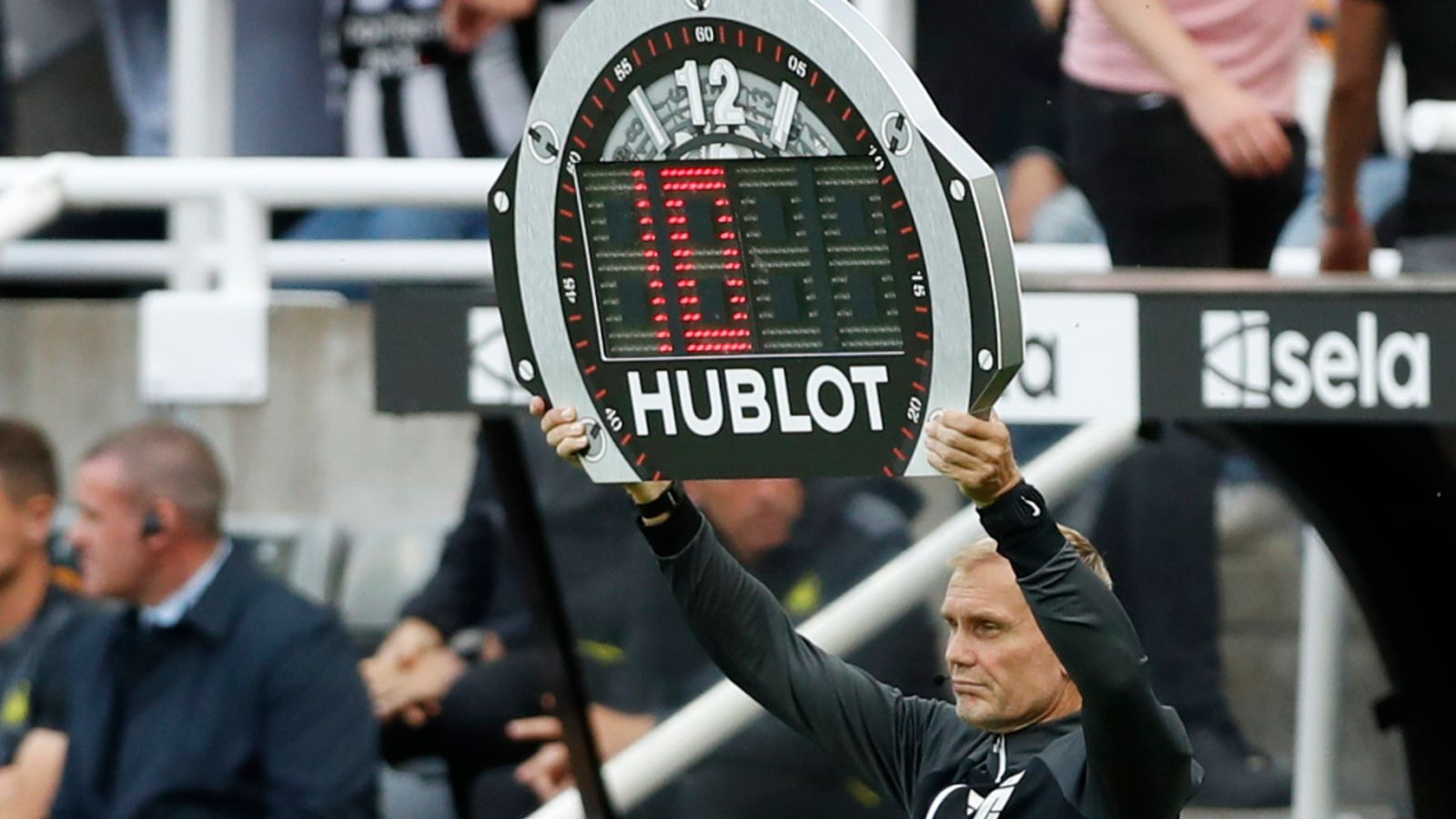Following the Community Shield and opening weekend of the Premier League – The new extra-time ruling has created a stir across the football world.
Extra time, additional time, stoppage time, time added on, Fergie time! These are the traditional terms for the regulation extra-time displayed by the fourth official, at the end of the 45 minutes and 90 minutes in a standard professional football game.
Until the start of this season, we’ve seen a low figure in actual ball-in-play time, for over a decade. But, not everyone is happy with the new ruling and implementation. Pep Guardiola was the first to have his opinion on this issue after City conceded a late equalizer, which led to their penalty shootout loss to Arsenal in the Community Shield.
Some players have complained that it would increase their workload and affect their mental health. So, what is the new ruling debacle all about? This season the Premier League and English Football League are committed to ensuring a more accurate calculation of extra time, in line with the most recent IFAB [International Football Association Board] guidance.
In a nutshell, this encourages players to get on with the game at a quicker rate, and rule changes look at increasing the amount of time the ball is in play by looking at the exact time lost when certain game events (goals and celebrations, substitutions, injuries, red cards, etc.) occur rather than a nominal amount of time [usually 30 seconds] added on.
What we’re seeing, is an increase in both game time and actual ball-in-play time. We’ve cried out for this over the years, but now it’s being implemented – we’re still seeing many unhappy campers. This especially comes when the fourth official holds up a digital board indicating 10 minutes of extra time at the end of a game.
Unlike rugby (where the referee stops the clock/time), time goes on in football. It’s up to the referee and officials to make sure enough time is added on. And with cases of VAR, medical attention, substitutions, and general time wasting – referees are ensuring that the proper time taken will be added on as it should be. Unfortunately, this doesn’t sit well with teams that want the game to end as soon as possible.
This new rule implementation will continue, but time will tell how long we’ll see those high minutes on the time board. The best thing is for players to get on with the program and allow it to happen, rather than spending time moaning and complaining. As another weekend of high-octane Premiership action approaches. It’s going to be exciting to see the moment the first set of extra minutes goes up and the drama that ensues during that magical period.

Extra time. stoppage time. Fergie time
Unlike rugby (where the referee stops the clock/time), time goes on in football. It’s up to the referee and officials to make sure enough time is added on. And with cases of VAR, medical attention, substitutions, and general time wasting – referees are ensuring that the proper time taken will be added on as it should be. Unfortunately, this doesn’t sit well with teams that want the game to end as soon as possible.
